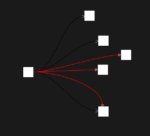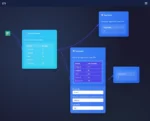In today’s fast-paced digital environment, enterprises no longer have the luxury of relying solely on nightly batch processing. Executives increasingly demand real-time insights—driving agile decisions measured in moments rather than days. When we talk about streaming data, Delta Lake and incremental tables emerge as game-changing solutions. They allow organizations to effectively harness change data streaming, improving their data warehousing flexibility, data quality, performance, and ultimately empowering a savvy approach to analytics. As data strategists specializing in advanced data analytics and innovative solutions, we frequently advocate Delta Lake to our clients. Through understanding incremental tables and streaming data, businesses can realize exceptional real-time analytics capabilities that are increasingly essential in competitive markets.
Why Incremental Tables Are the Backbone of Real-Time Analytics
Traditional batch processing architectures often struggle under the demands of modern real-time data flows. Dependency on overnight ETL processes has become a bottleneck, preventing timely strategic decisions. Incremental tables circumvent these challenges by recording only the latest changes—including insertions, updates, or deletions—to your data sets. This minimalistic yet potent method enhances performance, reduces overhead, and unlocks real-time analytics capabilities, essential for decision-makers tasked with managing increasingly complex data streams.
Incremental tables supported by platforms like Delta Lake provide scalable solutions to this common challenge. By continuously tracking changes rather than maintaining bulky historical snapshots, organizations cut time to insight significantly. Delta Lake brings together the ease of use of traditional data warehousing with the power of incremental streaming—leveraging delta logs to keep track of data versioning. This approach benefits businesses by greatly improving query performance and allowing more agile analytics practices, ensuring accelerated decision-making to enhance market responsiveness. Whether implementing data strategies for startups or large corporations, adopting incremental tables paves the groundwork for real-time data consumption—transforming operational agility.
As organizations embrace true real-time analytics enabled by incremental tables, they naturally strengthen their competitive positioning. We consistently observe companies stepping into powerful, event-driven analytics environments—taking immediate action based on fresh, trustworthy data in a timely manner.
Understanding Streaming Change Data Capture (CDC)
Change Data Capture or CDC lies at the heart of incremental table methodologies. CDC involves capturing database changes at their source as they happen in real-time—this includes inserts, updates, and deletes—then streaming those changes securely to downstream data destinations. Integrating CDC with Delta Lake elevates incremental data pipelines into truly responsive, high-performing data-driven organizations that demand quick, confident adjustments.
CDC integration helps enterprises move away from the traditional static snapshots and move toward incremental updates of data analytics repositories. Platforms like Delta Lake allow real-time ingestion of CDC data feeds, maintaining accurate, granular records without repetitive batch rebuilds. Companies leveraging CDC-streaming strategies immediately elevate their data governance and quality because incremental, event-driven processing inherently promotes better accuracy and data quality controls.
Within a well-governed data environment—like the federated governance solutions explored in our post Federated Data Governance Implementation Across Business Units—CDC’s potency in generating clean, relevant, and recent information fuels superior analytics and decisioning processes. By focusing on incremental change streaming, organizations accelerate feedback loops, enhance operational responsiveness, and achieve finer-grained control over information quality and timeliness. This enables executive teams to act smarter, make proactive and data-driven decisions faster.
The Power of Delta Lake in Incremental Data Processing
Delta Lake uniquely combines transactional reliability procedures with scalable incremental ingestion of streaming data—an invaluable technology for today’s analytics-driven organizations. Built atop open-source technologies like Apache Spark, Delta Lake is purpose-built to support incremental updates efficiently and accurately. It pairs rapid streaming capabilities with transactional integrity, enabling businesses to ingest and query incremental changes swiftly and seamlessly.
Delta Lake addresses common data warehousing pain points by minimizing downtime and dramatically increasing performance with incremental updating. Incremental tables in Delta Lake use log tracking mechanisms (delta logs) that clearly indicate data changes from the previous state. This clarity means analysts can query the freshest data reliable—mitigating time-consuming indexing issues discussed in our post Enhancing Data Retrieval With Indexing in SQL. With fewer heavy batch processes, analytics operations become inherently stable, agile, and highly automated, dramatically cutting back data latency timeframes.
On-the-fly schema evolution capabilities also grant security and flexibility. Organizations profiting from Delta Lake’s incremental processing capabilities can easily integrate advanced technical innovations without sacrificing performance standards or data accuracy, ensuring strategic continuity and minimal disruptions to business operations.
Implementing Incremental Tables: Practical Considerations for Success
Implementing incremental table strategies demands comprehensive technical expertise and structured planning. Successfully operationalizing streaming CDC using Delta Lake means proactively managing schema changes, security implications, and data modeling complexity to minimize friction across data initiatives. Thoughtful implementation involves rigorous planning and thorough testing to ensure successful, secure, and compliant deployments.
Incremental tables require optimal integration with database resources, frequently necessitating advanced SQL understanding. Companies can benefit greatly from mastering key SQL concepts, like those highlighted in our article Filtering Data with Precision Using SQL’s WHERE Clause. Streamlining increment-based retrieval processes helps optimize the database workload and provides robust data analytics integration. Furthermore, proper implementation supports strong compliance-related processes. Integrating incremental processes in conjunction with governance workflows can efficiently automate privacy controls—part of a strategy explored further in our blog on Privacy Impact Assessment Automation Framework.
Thorough implementation also means addressing critical points of flexibility early in your architecture—for example, recursive data processing approaches discussed in Recursive Data Processing for Hierarchical Structures. Creating flexible, scalable architectures enables enterprises to comfortably adapt incremental processing methods while managing data hierarchies effectively, positioning them to quickly scale future analytics ambitions.
The Broader Impact: Enhancing Data Agility Across Your Organization
With incremental tables and Delta Lake, organizations substantially enhance their ability to react quickly to evolving conditions, driving measurable business agility. Decision-makers benefit immensely from the increased responsiveness these technologies provide—ability to recognize emerging trends immediately, act proactively, and meet strategic objectives with data-informed precision.
Leveraging incremental tables encourages business units across your organization to embrace data-driven decision-making. Empowering analysts and data scientists with timely, accurate incremental data streams means they can experiment more daringly, adjust faster, and deliver insights that resonate in real-world effectiveness. In industries increasingly characterized by volatility, this agility represents critical competitive advantage.
We’ve experienced firsthand through collaborations such as our partnership outlined in The Role of the University of Texas at Austin in Training the Next Generation of Data Analysts, how equipping teams with strong incremental data pipeline expertise creates lasting impacts. As your organization leverages incremental tables, employee analytics capabilities naturally mature, fueling innovation across the enterprise and sustainably embedding a data-driven culture.
Conclusion: The Strategic Advantage of Incremental Tables with Delta Lake
Incremental tables and streaming CDC using Delta Lake create powerful opportunities for enterprises seeking agile, responsive, and reliable data infrastructures. Incremental approaches improve efficiency, accelerate generation of insights, enhance data quality, and ultimately drive significant competitive advantage. Successfully deploying incremental solutions requires careful planning, in-depth expertise, robust governance frameworks, and strong data engineering skills.
At Dev3lop, we recognize that implementing these solutions ultimately means crafting powerful technical strategies aligned precisely to organizational goals. Incremental tables position your enterprise for sustained analytical maturity—delivering impactful business outcomes for today’s competitive landscape and into the foreseeable future.

























